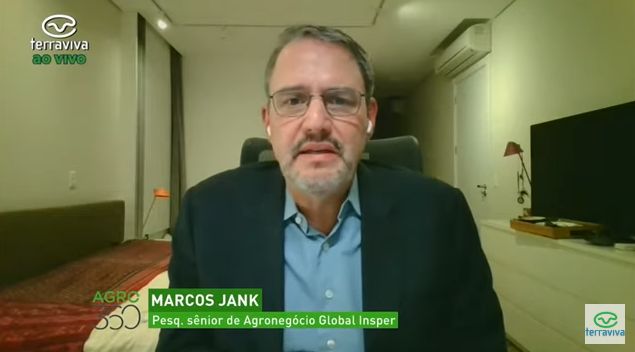São Paulo – Arab countries are poised to overtake the European Union (EU) as a destination for Brazilian agribusiness products. So says professor and Insper senior researcher on Global Agribusiness Marcos Jank, who’s regarded as one of the most authoritative voices in the industry. Jank made the prediction recently on TV channel Terra Viva’s Agro 360 show, which centered around the Arab countries and featured the Arab Brazilian Chamber of Commerce.
“I believe the Arab countries will outdo Europe as buyers of Brazilian agribusiness in no time,” he said, after pointing out that the EU, which imported as much as USD 25 billion in agribusiness goods from Brazil at one point, is now buying USD 16 billion. As per Brazilian Ministry of Agriculture, Livestock and Supply numbers, China is the number one importer right now, with the EU in second despite the drop in imports.
Marcos Jank said the Arab countries and China are the two parts of the world that really matter to Brazil’s agribusiness industry. He said sales to Middle East and North Africa countries amount to USD 13 billion. “We must understand that our growth depends on tighter and tighter relations with the Arabs and the Chinese. That’s where our demand is going to come from. We’re married to them and we need to treat them well,” he argued.
Jank said the Arab countries import USD 110 billion in agribusiness products from around the world, with Brazil accounting for USD 9 billion. Ministry numbers show that Brazilian agribusiness exports to Arab countries – rather than all Middle East and North Africa ones – came out to USD 8.5 billion last year.
“It’s a region which imports USD 110 billion and exports USD 40 billion. There’s a major deficit, and that’s not going to change, because it’s a region with scant natural resources. There’s not enough water, there are issues with the soil, so this is an old wedding, a cultural wedding,” he said of Brazilian-Arab relations.
The researcher believes one of the biggest challenges resides in diversifying exports to Arab countries both in terms of destinations and products. The primary importers are Saudi Arabia, the UAE and Egypt, with sugar making up 20% of sales, followed by poultry at 18%, beef at 16%, maize at 15%, soy at 10%, and livestock at 6%, Jank said during the TV show.
Marcos Jank said sales have gone up for less regulated products such as soy, maize and livestock. When it comes to meats, on the other hand, face restrictions on export accreditations allowing suppliers to export. “We must fight to diversify, but also to add value. Meats carry more value than grains. We need to increase our access to that entire region,” he said.
According to the researchers, Arab countries are stepping up their imports each year by 10% for processed foods, 9% for fresh fruit, 10% for fish and seafood, and 6% for dairy. “We could work to diversify by adding other complementary products. Fish and seafood is a great option,” he suggested.
Marcos Jank noted that in face of the pandemic, Brazil reassured the world that it’d remain a global food supplier and espoused keeping markets open. According to him, the threat of food insecurity looms larger in Arab and Sub-Saharan Africa countries because they are such import-dependent regions. “We are stepping forward and saying ‘Look, we will help make sure there is food security,” he said.
Agro 360 episode “Diversification of Brazilian products in the Arab world” aired May 11. It also featured Parliamentary Group for Agriculture chair and congressman Alceu Moreira, Brazilian Agricultural Research Corporation (Embrapa) chair Celso Moretti, BRF CEO Lorival Luz, Brazilian Animal Protein Industry Association (ABPA) executive director Ricardo Santin, and Arab Chamber president Rubens Hannun.
Translated by Gabriel Pomerancblum




